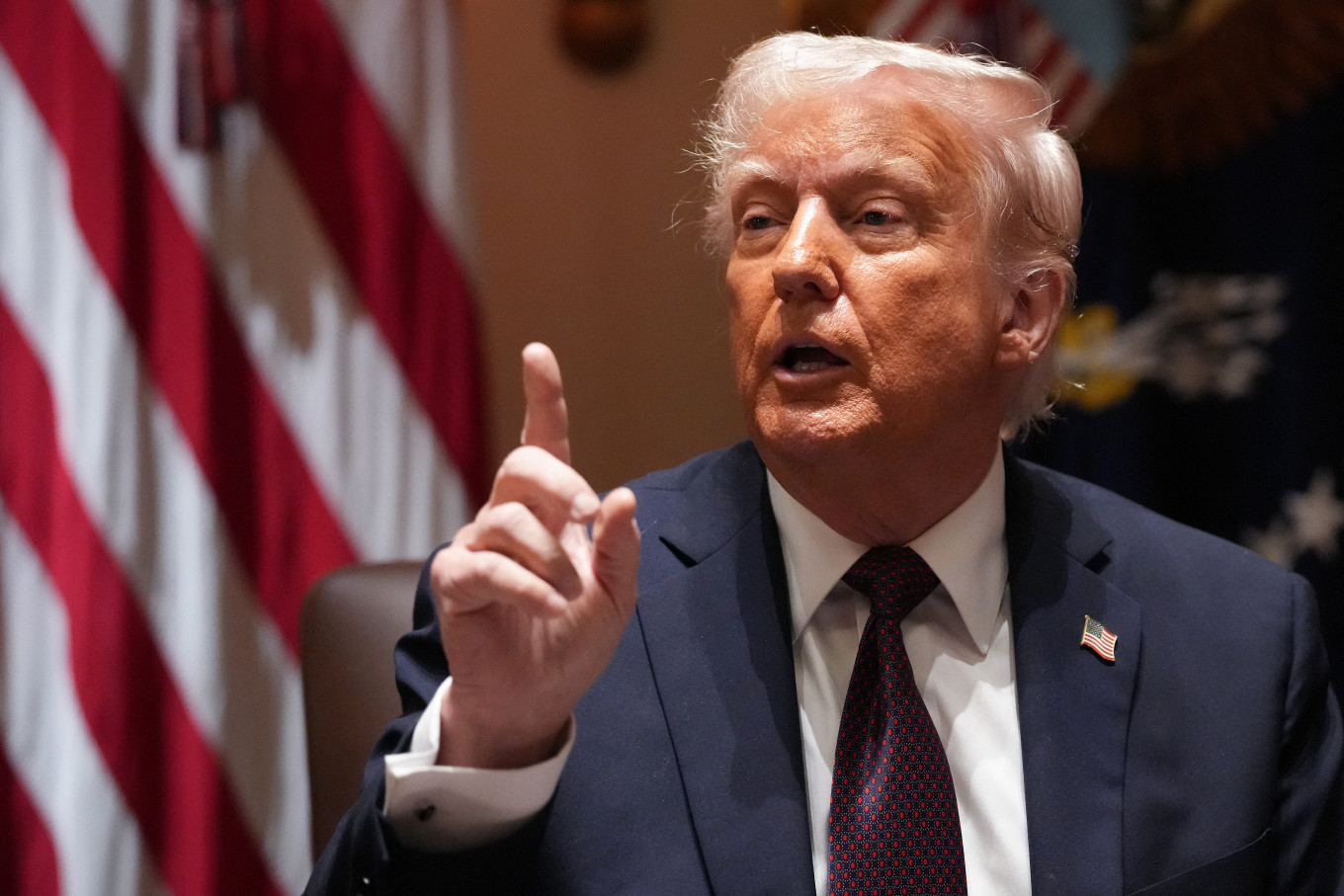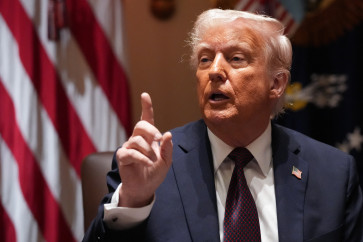Popular Reads
Top Results
Can't find what you're looking for?
View all search resultsPopular Reads
Top Results
Can't find what you're looking for?
View all search resultsTariff man Donald Trump doubles down
From a global perspective, tariffs mostly do more harm than good. While some argue that they contribute to national security, the reality is that tariffs raise costs and lower the quality of domestic production, undermining the very economies they are meant to protect.
Change text size
Gift Premium Articles
to Anyone
U
nited States President Donald Trump has long been a staunch advocate of import tariffs, proudly calling himself “Tariff Man” and asserting that “tariff” is “the most beautiful word in the dictionary.”
During his first term, Trump significantly disrupted the multilateral trading system by raising tariffs on Chinese imports and undermining the World Trade Organization. But the size and scope of the tariffs he has imposed since his return to the White House have shocked the world.
Defenders of Trump’s trade policies argue that his tariff threats are merely a negotiating tactic and will ultimately benefit the US economy. But his recent actions, including his plan to impose “reciprocal” tariffs, matching those imposed by other countries on US goods, suggest that, unlike in his first term, he is fully committed to his protectionist trade agenda.
Trump’s ultimate goal, however, remains unclear. He seems to have embraced the deeply misguided idea that imports are inherently harmful. To paraphrase French economist Frédéric Bastiat, if exports are good and imports are bad, then the world’s freight ships should be loaded with exports and sent out to sea to dump their cargo overboard.
From a global perspective, tariffs mostly do more harm than good. While some argue that they contribute to national security, the reality is that tariffs raise costs and lower the quality of domestic production, undermining the very economies they are meant to protect.
Consider, for example, shipbuilding. Constructing an average-sized ocean-going ship costs 4-6 times more in the US than in Japan or South Korea. A ship that costs US$55 million to build in China would cost $333 million in the US.
While some may justify these cost differences on national-security grounds, one must wonder: Wouldn’t the US Navy be far stronger if it could acquire four times as many ships by purchasing them abroad?



















